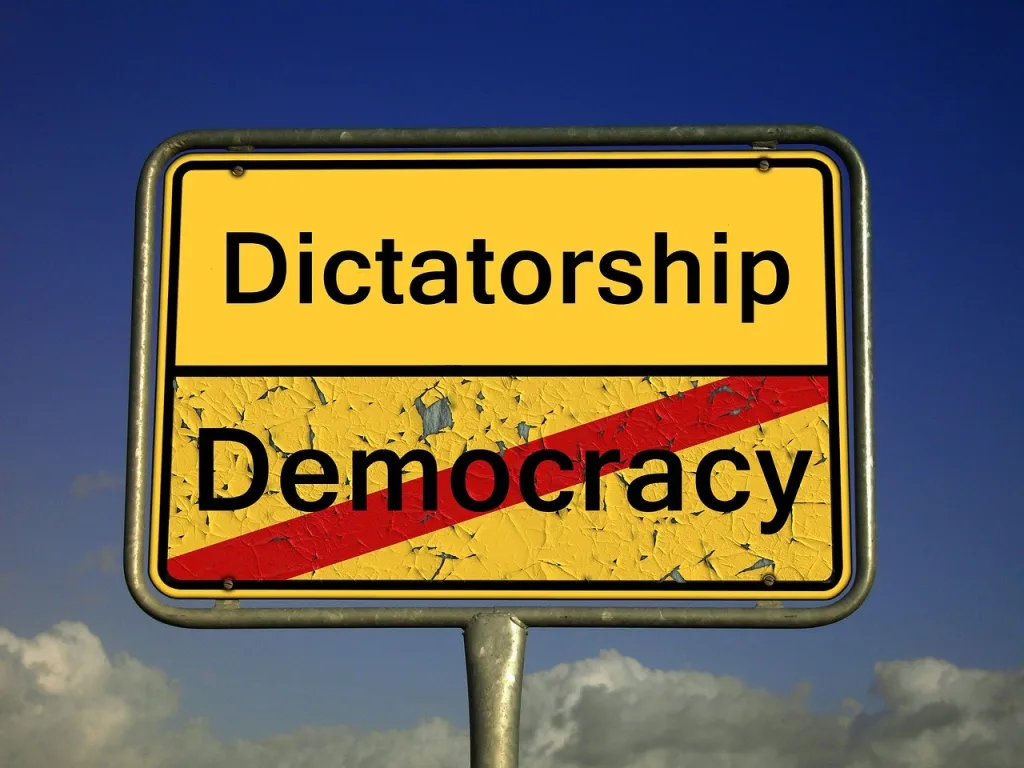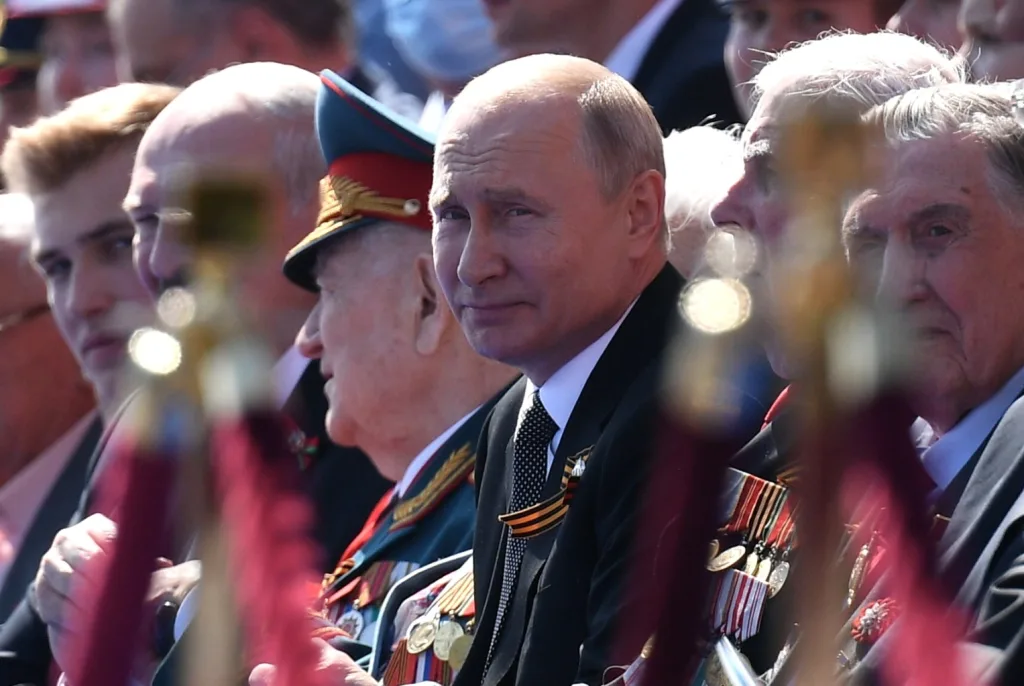Dictatorship is a system of government that grants unlimited power and control to a single individual, known as the dictator. In this form of governance, the dictator holds absolute authority and makes all decisions without any input or say from the people. The people have no voice or power in the decision-making process, and their rights and freedoms are often disregarded.
The nature of a dictatorship is characterized by the absence of checks and balances on the leader’s power. Unlike in a democracy where power is distributed among elected representatives, a dictatorship concentrates power in the hands of one person or a small group. This concentration of power allows the dictator to exercise control over all aspects of government, including legislation, judiciary, and executive functions.
Dictators can come to power through various means, such as military coups, revolutions, or election fraud. While some dictators may claim to have been elected, these elections are often manipulated or rigged to ensure their victory, undermining the democratic process.
Under a dictatorship, the government operates solely based on the whims and desires of the dictator. They have the authority to enact laws, enforce policies, and make decisions without any accountability or consideration for the rights and well-being of the people. Human rights violations are common in dictatorial regimes, as the dictator’s primary objective is to maintain and consolidate their power.
The people living under a dictatorship have no say in the decision-making process, and dissent or opposition to the regime is often met with severe consequences. Freedom of speech, assembly, and expression are suppressed, and political opponents, activists, and journalists are often silenced, imprisoned, or even executed.
Dictatorships can lead to economic stagnation, corruption, and the misallocation of resources, as the dictator’s interests and those of their inner circle take precedence over the welfare of the general population. The lack of transparency and accountability in a dictatorship allows for widespread corruption and embezzlement of public funds.
It is important to note that not all autocratic or authoritarian governments are considered dictatorships. In some cases, there may be certain checks and balances, albeit limited, on the ruler’s power. However, true dictatorships are characterized by the absolute control and dominance of one individual or a small group over the entire nation.
A dictatorship is a form of government where ultimate power rests in the hands of a single dictator. The people have no say in decision-making, and their rights and freedoms are often disregarded. Dictatorships are marked by the absence of checks and balances, the suppression of dissent, and widespread human rights violations.
What Are The Characteristics Of A Dictatorship?
A dictatorship, as defined on Quizlet, is a form of government where an individual, known as the dictator, holds absolute power and control over the country. In this type of regime, the dictator has the authority to make all decisions without any input or consultation from the people. It is important to note that dictators are not usually elected by the citizens, and in cases where elections do take place, they are often manipulated or rigged in favor of the dictator.
The characteristics of a dictatorship can be summarized as follows:
1. Concentration of power: The dictator possesses all the power and authority in the country. They have the final say in all matters, including legislation, policy-making, and governance.
2. Lack of political pluralism: Dictatorships often suppress any form of political opposition or dissent. Political parties and organizations that challenge or question the regime are typically banned or heavily restricted.
3. Absence of free and fair elections: In most dictatorships, elections are either non-existent or manipulated to ensure the dictator’s continued hold on power. These elections often lack transparency, and opposition candidates may face repression or intimidation.
4. Limited civil liberties: Dictatorships frequently curtail the civil liberties of their citizens. Freedom of speech, assembly, and expression are often restricted, and censorship is commonly enforced to control the flow of information.
5. State-controlled media: Dictatorships often control or heavily influence media outlets to shape public opinion in their favor. Independent journalism and reporting are frequently suppressed, and propaganda becomes a tool to manipulate public perception.
6. Suppression of human rights: Human rights violations are common in dictatorships, including arbitrary arrests, torture, and extrajudicial killings. Citizens’ rights to privacy, due process, and a fair trial are often disregarded.
7. Limited checks and balances: Dictators have little to no accountability, as they are not subject to checks and balances typically found in democratic systems. This lack of oversight can lead to corruption, nepotism, and the unchecked abuse of power.
8. Cult of personality: Many dictators cultivate a personality cult, where they are glorified and portrayed as infallible leaders. Propaganda, public ceremonies, and symbols are used to elevate the dictator’s image and maintain their grip on power.
9. Economic control: Dictatorships often exert control over the economy, either directly or indirectly. They may nationalize industries, suppress free markets, and manipulate economic policies to serve their own interests and those of their supporters.
10. Limited or no peaceful transition of power: Dictatorships typically lack a peaceful transfer of power through elections or established mechanisms. Instead, the dictator may remain in power until forcibly removed, often leading to instability and conflict.
It is important to understand that each dictatorship may exhibit variations in these characteristics, but these are the common elements that define this form of government.

What Is The Definition Of Dictatorship?
Dictatorship, as defined on Quizlet, refers to a system of government where one individual, known as the dictator, holds absolute power and control. In this form of governance, the dictator exercises authority without any checks or balances, often disregarding fundamental human rights and freedoms.
Key characteristics of dictatorship include:
1. Concentration of Power: The dictator possesses unrestricted control over the government, making all major decisions without the need for consensus or consultation.
2. Lack of Democracy: Dictatorship is typically marked by the absence of democratic processes, such as free and fair elections, as the dictator maintains authority through coercion or force.
3. Suppression of Opposition: Dictators often suppress or eliminate any opposition, which may include political opponents, dissidents, or anyone who challenges their authority. This is done through tactics such as censorship, surveillance, intimidation, or even imprisonment and violence.
4. Limited Civil Liberties: Under a dictatorship, individual freedoms and civil liberties, such as freedom of speech, press, assembly, and association, are severely curtailed or non-existent. The dictator exercises control over media outlets, restricting information flow and manipulating public opinion.
5. Lack of Accountability: Dictators are not typically accountable to the public or any independent institutions. They can act with impunity, making decisions without oversight or consequences, which can lead to corruption and abuse of power.
6. Centralized Decision-Making: Dictators make decisions on behalf of the entire nation or state, without the involvement or input of other branches of government or citizens. This can lead to policies that serve the interests of the dictator and their inner circle, rather than the welfare of the population as a whole.
It is important to note that dictatorship can take various forms and be found across different historical periods and geographical locations. The severity and methods employed by dictators can vary, but the common thread is the concentration of power in the hands of a single individual, often resulting in authoritarian rule and the suppression of human rights.
Who Holds The Power In A Dictatorship?
In a dictatorship, absolute power is held by one individual known as the dictator. This leader has complete control and authority over the government, making all major decisions without any limitations or checks from other branches of government or the general population.
The dictator in a dictatorship is not bound by any constitution or legal framework, allowing them to exercise their power without constraints. They have the final say in all matters, including legislation, policy-making, and the enforcement of laws. The dictator often maintains their power through force, suppression of opposition, and the manipulation of state institutions.
The power in a dictatorship is solely held by the dictator, who exercises absolute control over the government and its people.
How Is A Government Conducted Under A Dictatorship?
Under a dictatorship, the government is controlled by a single person or a small group of individuals who hold absolute power and authority. Unlike in a democracy where power is dispersed among the people, in a dictatorship, the dictator exercises complete control over all aspects of governance.
Here is a detailed explanation of how a government is conducted under a dictatorship:
1. Centralization of Power: In a dictatorship, power is concentrated in the hands of the dictator. The dictator makes all major decisions without any consultation or input from the citizens. The dictator’s word becomes law, and there are no checks and balances to limit their authority.
2. Suppression of Opposition: Dictators often suppress any form of opposition or dissent. They use tactics such as censorship, surveillance, intimidation, and even violence to silence critics and maintain control. Independent media, political parties, and civil society organizations are often banned or tightly controlled.
3. Lack of Political Pluralism: Dictatorships do not allow for political pluralism or the existence of multiple political parties. Instead, the dictator’s party or a small group of loyalists becomes the only legally recognized political entity. This ensures that the dictator’s power remains unchallenged.
4. Absence of Free and Fair Elections: In a dictatorship, elections are often a mere formality, with the dictator or their chosen candidates winning by a landslide. There is no genuine competition, and the electoral process is heavily manipulated to ensure the dictator’s continued rule.
5. State Control of Institutions: Dictators exert control over key institutions such as the military, police, judiciary, and bureaucracy. These institutions serve the interests of the dictator and are used to maintain control and suppress opposition. The rule of law is often disregarded, and arbitrary decisions are common.
6. Lack of Civil Liberties: Under a dictatorship, citizens’ civil liberties are severely restricted. Freedom of speech, assembly, and association are curtailed, and individuals can be punished for expressing dissenting views or organizing opposition. Human rights abuses, including torture and imprisonment without trial, are common.
7. Cult of Personality: Dictators often cultivate a cult of personality around themselves, portraying themselves as saviors or benefactors of the nation. Propaganda and state-controlled media are used to glorify the dictator’s achievements and suppress any negative information.
8. Limited Economic Freedom: In many dictatorships, the state controls major sectors of the economy. The dictator and their associates often have significant control over national resources and use them for personal gain. Economic policies are often driven by the dictator’s interests rather than the welfare of the citizens.
A government under a dictatorship is characterized by the concentration of power in the hands of a single person or a small group, the suppression of opposition and dissent, lack of political pluralism and free elections, state control of institutions, restrictions on civil liberties, cult of personality, and limited economic freedom.

Conclusion
Dictatorship is a form of government where one person, known as the dictator, holds absolute power and control over the entire nation. This type of government lacks any form of checks and balances, allowing the dictator to make all decisions without the input or consent of the people. Human rights are often disregarded under a dictatorship, as the dictator’s focus is solely on maintaining and consolidating their power. Elections, if held at all, are often rigged to ensure the dictator remains in power. Dictatorships are characterized by a lack of freedom, limited civil liberties, and a lack of accountability. The people have no say in the decision-making process, and dissent is often met with severe consequences. dictatorship is a system that concentrates power in the hands of one individual, leading to a lack of democracy, human rights abuses, and a disregard for the well-being of the population.
